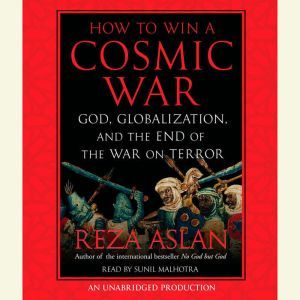

How to Win a Cosmic War
God, Globalization, and the End of the War on Terror
Author: Reza Aslan
Narrator: Sunil Malhotra
Unabridged: 7 hr 7 min
Format: Digital Audiobook Download
Publisher: Random House Audio
Published: 04/21/2009
Synopsis
The hijackers who attacked the United States on September 11, 2001, thought they were fighting a cosmic war. According to award-winning writer and scholar of religions Reza Aslan, by infusing the United States War on Terror with the same kind of religiously polarizing rhetoric and Manichean worldview, is also fighting a cosmic war–a war that can’t be won.
How to Win a Cosmic War is both an in-depth study of the ideology fueling al-Qa‘ida, the Taliban, and like-minded militants throughout the Muslim world, and an exploration of religious violence in Judaism, Christianity, and Islam. Surveying the global scene from Israel to Iraq and from New York to the Netherlands, Aslan argues that religion is a stronger force today than it has been in a century. At a time when religion and politics are increasingly sharing the same vocabulary and functioning in the same sphere, Aslan writes that we must strip the conflicts of our world–in particular, the War on Terror–of their religious connotations and address the earthly grievances that always lie behind the cosmic impulse.
How do you win a cosmic war? By refusing to fight in one.


